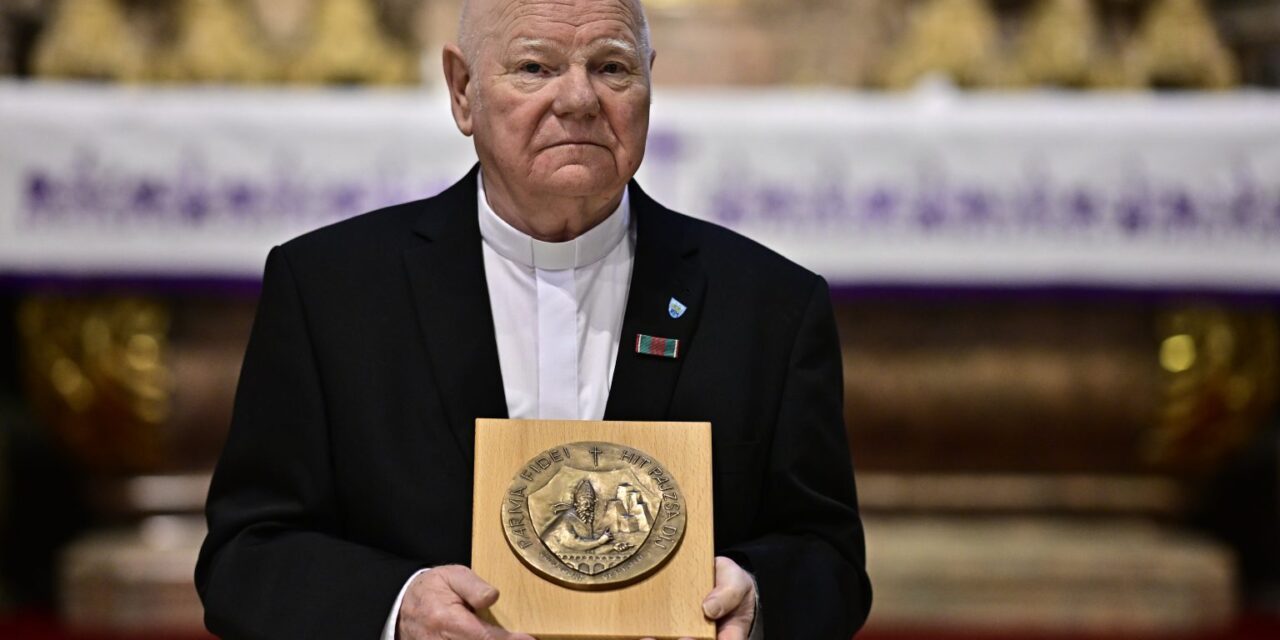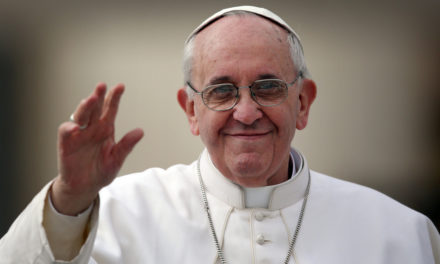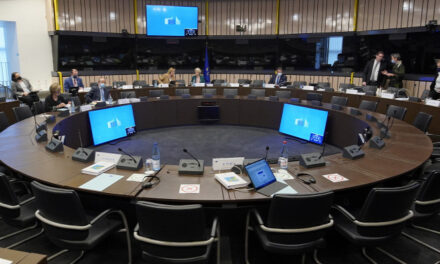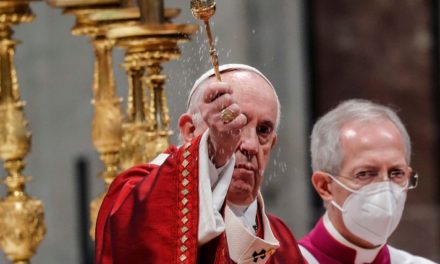The anti-Churchism of the Kádár era was perhaps even more repulsive than the Cancerist times. The Rákos at least attacked openly, the Kádárs, on the other hand, insidiously, creating the appearance that they were not anti-Church. Especially the danger posed to priests when they dealt with young people. This year's Shield of Faith awardee, Father Sándor Sebők, did just that.
– The Kádár era was much tougher than it seems in retrospect. Confessing priests were imprisoned even in 1971, but this did not have much resonance. In the communist (today it is called socialist) era, therefore, choosing a priestly profession was almost equivalent to accepting persecution. However, Father Sebók chose this profession. Why?
- Jesus says that you did not choose me, but I chose you. It was like love. When a person is captured by love, he does not care about anything but the object of his love. Love is a powerful force, the child can even oppose his parents for the sake of his love. It was quite natural for me that if the Good Lord calls me to be a priest and I hear the call, then I will go. From the age of seven, I clearly felt that God was calling me to be a priest. Later, when they asked me what I was going to be, I looked the interviewer in the eye and told them that I wanted to be a priest, enjoying their astonishment. The more distant relatives wanted to talk about it, but my father, who was a Reformed, was happy with my plan. He even bragged about it at work, and when I worked there a year later, his colleagues already knew about it. Although my mother raised me in a deeply religious spirit to love God - she was Catholic - she never told me to become a priest. So, on one side, there was the supportive family, and on the other, great priests who took care of me even when they didn't know that I was preparing to become a priest. And when this was revealed, they paid special attention to me. They became priests in the fifties, so their fate was even more difficult than ours later. These priests dealt with the children, including me, in a very conscientious manner, so it was an example that I could follow later on.
- He followed, but in the eyes of the communists, he was burdened with the biggest sin, since he gathered the young people around him and educated them. And that system could not tolerate this.
- They didn't act against us openly - because several of my fellow priests did the same - but
the Kádár dictatorship was like a water polo player who raises both his hands, showing that he is playing properly, while dragging and kicking his opponent with his feet.
Compared to the Rákosi era, it is like carbon monoxide. Rákosi's dictatorship was palpable, like carbon dioxide, Kádár's and the imperceptibly poisonous carbon monoxide. They acknowledged and allowed the priests to deal with small children, the elderly and the sick, but they wanted to keep the youth away from the church. Although dealing with patients was not always without danger. Father Lajos Kerényi, for example, visited the hospital regularly, but once also visited the wife of the party secretary. He was rescued by the nurses.
- Knowing this, winning young people could have been an even more dangerous undertaking.
- The communists also knew that the future belonged to the young people, just as it became theirs. The young people I worked with are now parents, even grandparents, and they form the backbone of their current parish. When I started youth work, I was young myself, close to them in age, and nothing was more natural than working with them. We organized the first mass with a guitar, but we also had a spiritual mass, we organized services with an African atmosphere, that is, with a new approach. We said that we don't do it to feel good, but because we already feel good in the Father's house and can allow ourselves to speak to the Good Lord in our own voice. Masses with a guitar were therefore not a string of honey with which to lure young people to the church, but an urge coming from within.
It may sound strange now, but at that time we also organized a house party once a month, where we danced with the young people we sang with at mass. Their religiosity had very deep roots, they had a real need for faith.
If it hadn't been, they wouldn't have come to confess and sacrifice.
- This "clerical mine work" could not be carried out unnoticed for a long time, the probing eyes of the State Church Affairs Office noticed everything. However, that organization functioned as if it were the headship of the church leaders.
- They had representatives in every county and they really had a say in the life of the church, and in the beginning they even planted their people in the bishop's seats to observe what the bishops were doing.
It would also be a shame to deny that they had installed people among the priests as well. If they did not like the way one of the brothers worked, they made sure that they were "exiled" to another place.
That is why I had to leave my first place of service, Verőce. Lajosmizse was next, they called me to Kecskemét and asked me why I was going on a trip with the children, why I was doing a shepherd game, a mystery game. For this reason, I also had to come from Lajosmizsé, and then I was a chaplain in Abony for a while. I also included Zagyvarékas, which is already Szolnok county, and there I held a slide show about Lourdes. The president of the office of church affairs there called me in, asking me why I was making a cinema or even a theater out of the church. Because
my other major sin was that we performed an hour and a half play about the life of Jesus.
We even wrote this piece with Lajosmizsei and performed it together. The secretary of the county office said that he could not stomach this. According to him, I do what I want in Pest County, but this is Szolnok County and if I continue, I will regret it. And because I continued, I had to leave after a year.
- The permanent relocation - I read this in an interview with you - backfired. Everywhere he turned, he formed youth communities, that is, he created communities that were undesirable for the communists.
"It wasn't just me, but countless other fellow priests as well." Every priest has his own charisma, some have an affinity for the elderly and the sick, and some have been able to work effectively with young people.
The Creator intervened in things, because if we had not been placed on the right and left, we would not have been able to infect half the country with our faith.
- I don't see much chance of such an "infection" now, I think the situation is even more difficult today than it was in communist times. Many decades of mine work had matured, and the soul-killing, nihilistic demagogue had an effect. Selfishness shuts down everything else.
– Liberal manipulation results in this. In the technocratic world, filth flows through the media, but even without it, young people are tested by many things. Gadgets start to fill their lives, so pastoral work is much more difficult, it is more difficult to reach them.
Theoretical materialism is laughed at by sane people, with practical materialism we have a much more difficult task, because it builds on people's laziness and desire for possessions, and it is very difficult to fight this.
The world of the sixties and seventies was completely different, then the young people wanted something, they were not dulled by everything I talked about before. That's why it's hard to get to them. Of course, it's not easy for me, an older person, but even young priests say it's harder than it was in our time. However, it is encouraging to experience things that give hope. This is also the case with the increasing number of Regnum Marianum communities. The youth educational organization was registered in 1899 and today has approximately 3,000 members. The local group was also established here in Fót, but there are also other organizations, for example different spiritual groups, university Catholic communities, so we can see many encouraging signs in Hungarian church life. The problem is that our young people are somewhat apolitical. However, Document No. 13 of the 2nd Vatican Council says: And the young must be taught the noble art of politics. They should get involved in the world of politics in their field, as they will be the future.
– The next thing that is very worrying, and this is not a Hungarian experience, but an international one, is the strongly spreading anti-Christianity. We once thought it existed in Africa, Asia, but now it's here. They want to condemn Christians because they quote from the Bible, remove the cross from the walls in schools, drag someone away because they pray silently in front of an abortion clinic for aborted fetuses.
- I recently spoke with a married couple, the man is German, the wife is Hungarian, they are around 50 years old and they are bitter because of the German church, that they have completely ruined themselves. However, it often happened in history that many things were destroyed, but there was always something that the Good Lord was able to build on. This is one of the messages of both Noah's story and the Babylonian confusion. These are instructive narratives, so they are not real stories that exemplify that
God always finds those on whom he can start a new beginning.
Hungary has it, and I hope it does in Europe too, only the vocal minority is heard better. I am not worried about Hungary, on the one hand, because it is my experience that the majority are sane, they have not lost their minds, and on the other hand, the church here is normal. At the same time, we are facing shocking things in Poland, Germany, Spain, France and it is very sad. We can only hope that with God's help this situation will change, but this also requires the cooperation of man, because the Good Lord does not act alone, but through us. The church had low points in the past, for example in the Middle Ages, but St. Francis of Assisi came and everything changed. In other words, the church somehow always survived the difficulties. We can hope for that now.
– I know that those who live their profession do not work to receive some kind of award or award, but recognition can be nice. This year, Father Sebők was awarded the Shield of Faith, an award given to church members who remained faithful to their faith even during the communist dictatorship.
"There is a book that was written about me, but I dictated it." It's titled: Thank you Lord for using me! The Shield of Faith is a truly honorable recognition, as it was awarded to those who suffered for their faith in the strict sense of the word. Who is in the GULAG, who is in prison at the hands of ÁVH interrogators. I was physically abused only once, not by the authorities, but by a blind, drunk atheist. I was just trying to do what was my inner need, because the apostle Paul also says: Woe to me if I do not preach the gospel. And that we walk in the covenant of Christ. These motivated me in my priestly life, perhaps that is why I was found worthy of the Shield of Faith. But I hope to receive the grand prize up there, from God.
Author: György Tóth Jr
Cover photo: Sándor Sebõk, parish priest of the Church of the Immaculate Conception in Fót, Father Regnum, master canons with the Parma fidei - Shield of Faith award in the Church of Our Lady of the Blessed Virgin Mary in Budapest on the Memorial Day of the Victims of Communism, February 25, 2024.
The prize is awarded every year to priests and monks who remained faithful to their faith even under the communist dictatorship. MTI/Márton Mónus












